Christmas is usually associated with lots of fun and festive foods that you can’t wait to feast on – unless you are pregnant, that is… While we aren’t going to tell you a big list of what you can’t eat (as we are sure you are well versed on all the “can not’s” during pregnancy already), we will provide some reminders so you can still enjoy the day, albeit eating “safely” to protect your unborn baby.
Food-borne infections
During pregnancy y,our immune system is suppressed, which means you are more susceptible to food-borne illness caused by the bacterium Listeria monocytogenes. As the bacterium can infect your unborn baby, leading to complications like stillbirth or pre-term labour, pregnant women are advised to avoid specific foods as a precaution. Such foods that are more likely to contain Listeria bacteria include soft cheeses, unpasteurised dairy, cold seafood, sandwich meats, pate, packaged salads, and bean sprouts.
Safer foods
There are many foods deemed safe during pregnancy provided they have been cooked and prepared properly. Foods that are generally safer to stick to at Christmas include: well-cooked lamb and roast turkey, vegetables, and fresh salads (prepared hygienically and washed) – so enjoy!
Be mindful of
Look for cooked desserts only and be mindful of homemade custards or crème anglaise as it could feature unpasteurized egg yolks. If you’re going to eat ham, eat it while it’s hot – and after it has been cooked to at least 75°C. Avoid uncooked seafood altogether. As for leftovers, consider this risky business… Generally, avoid it as it’s hard to know how long it was left sitting out the day before. If you do indulge, ensure the food was made 24 hours prior and that it’s reheated to be steaming hot first (heated to 75°C for more than two minutes).
Food preparation
A main contributor to food poisoning is when food isn’t stored or prepared properly. For example, if the food isn’t fresh, washed, cooked properly, or left out for too long (not refrigerated). It’s also important to avoid repetitive thawing and refreezing of food. A good blog on freezing and thawing can be found here by Hygiene Food Safety.
If you’re preparing food yourself, look to:
- Follow cooking and handling instructions
- Always check a food items’ use-by date
- Use a food thermometer.
For more information about what is safe to eat in pregnancy, Queensland Health is a good resource here.
Sources and further reading:
